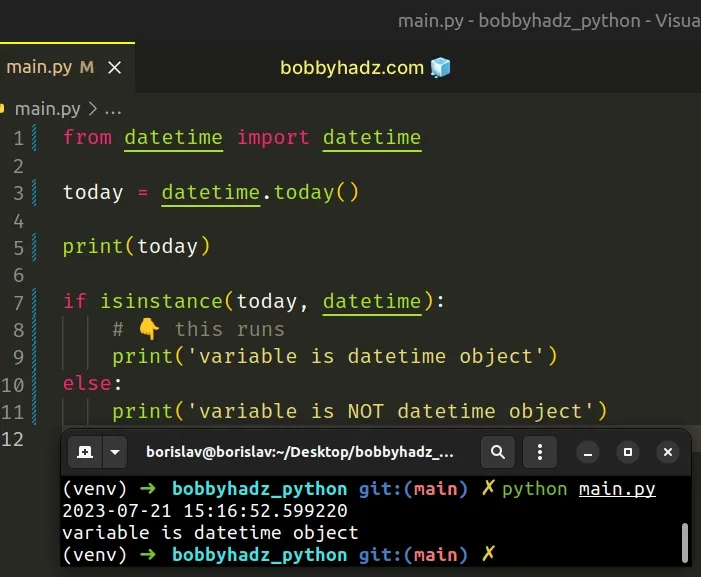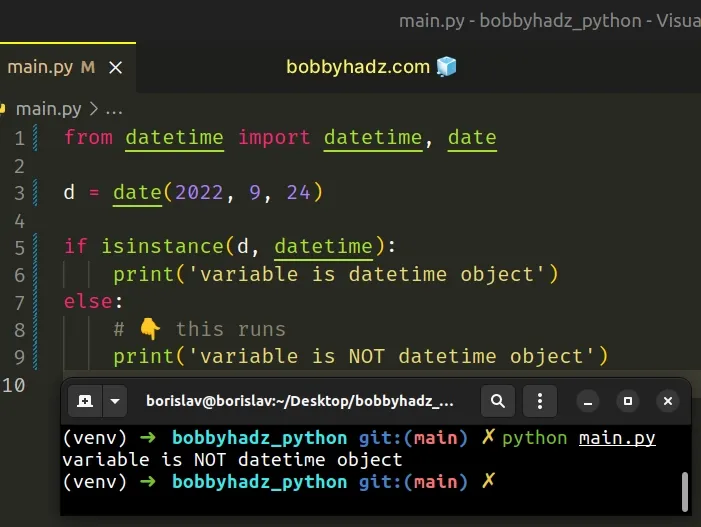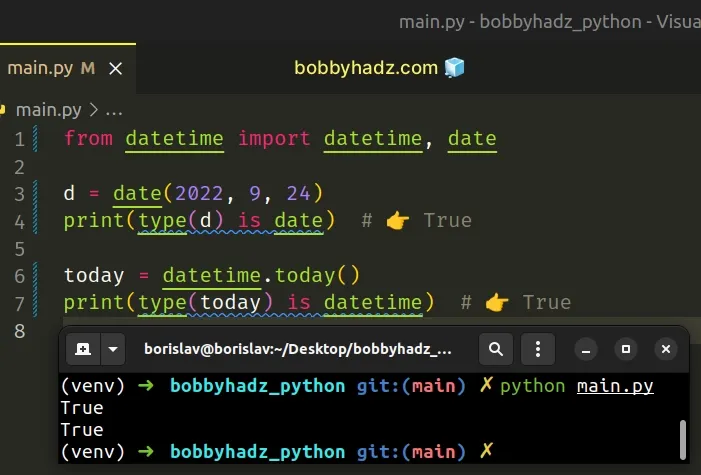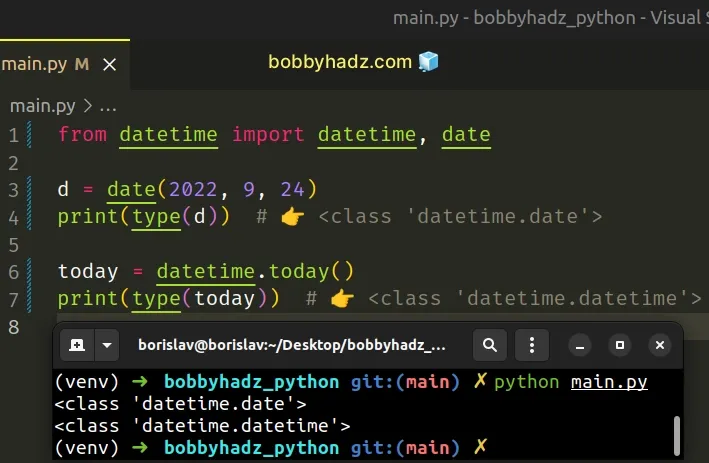Check if a variable is a Datetime object in Python
Last updated: Apr 8, 2024
Reading time·2 min

# Check if a variable is a datetime object in Python
Use the isinstance built-in function to check if a variable is a datetime
object in Python, e.g. if isinstance(today, datetime):.
The isinstance function returns True if the passed-in object is an
instance or a subclass of the passed-in class.
from datetime import datetime today = datetime.today() print(today) if isinstance(today, datetime): # 👇️ this runs print('variable is datetime object') else: print('variable is NOT datetime object')

The isinstance function returns
True if the passed-in object is an instance or a subclass of the passed-in
class.
We imported the datetime class from the
datetime module.
datetime class is a subclass of the date class, so make sure you pass the correct second argument to isinstance.# A date object is not an instance of datetime
If you create a date object and check if it's an instance of datetime, you
would get False back.
from datetime import datetime, date d = date(2022, 9, 24) if isinstance(d, datetime): print('variable is datetime object') else: # 👇️ this runs print('variable is NOT datetime object')

The else block runs because date objects are not an instance of datetime,
they are an instance of the date class.
from datetime import date d = date(2022, 9, 24) # 👇️ Pass date as second arg to isinstance if isinstance(d, date): # 👇️ this runs print('variable is datetime object') else: print('variable is NOT datetime object')
# Using the is operator to check if an object is a datetime object
You can also use the is operator to check if an
object is a datetime object.
from datetime import datetime, date d = date(2022, 9, 24) print(type(d) is date) # 👉️ True today = datetime.today() print(type(today) is datetime) # 👉️ True

The
is and is not operators
test for an object's identity: x is y is true only if x and y are the same
object.
An object's identity is determined using the id function.
x is not y returns the inverse truth value.
The type class returns the type of an object.
from datetime import datetime, date d = date(2022, 9, 24) print(type(d)) # 👉️ <class 'datetime.date'> today = datetime.today() print(type(today)) # 👉️ <class 'datetime.datetime'>

Most commonly the return value is the same as accessing the __class__
attribute on the object.
# Additional Resources
You can learn more about the related topics by checking out the following tutorials:

